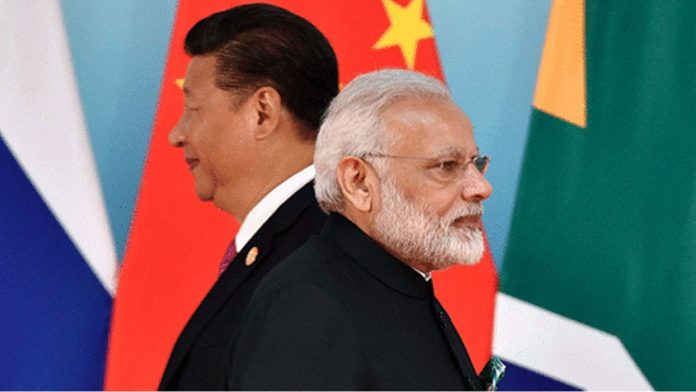In a remarkable display of assertiveness, India has once again refused to bow down to China’s ambitious Belt and Road Initiative (BRI), signaling a dramatic shift in its attitude towards its neighboring giant. The latest New Delhi declaration, issued at the conclusion of the Shanghai Cooperation Organisation (SCO) leaders’ summit, clearly demonstrates India’s unwavering stance against China’s flagship project, led by President Xi Jinping.
In a witty move, India decided to break away from the pack and withheld its signature from the paragraph endorsing the BRI. This is not the first time India has taken such a step. Last year, during the Samarkand declaration, India also stood its ground and refused to sign off on the BRI paragraph. The message is clear: India is no longer mincing its words when it comes to China’s initiatives.
The New Delhi declaration, in its unambiguous language, states, “Reaffirming their support for China’s ‘Belt and Road Initiative’ (BRI) initiative… note the ongoing work… to jointly implement this project… .” However, conspicuously absent from the list of supporters is India, which has consistently opposed the BRI due to concerns over the China-Pakistan Economic Corridor’s impact on its territorial integrity and sovereignty.
India’s refusal to endorse the BRI is not the only instance where it has shown its confidence. In the fight against terrorism, the Delhi declaration mirrors its predecessor, the Samarkand declaration, with a twist. While retaining the essence, India cleverly swapped the word “ultranationalism” with “chauvinism” to make its own mark on the matter.
Furthermore, the New Delhi declaration boldly denounces interference in the internal affairs of states, using the phrase “mercenary goals” instead of the softer “deceptive purposes” employed in 2022. This linguistic adjustment sends a strong message that India will not tolerate any attempts to exploit terrorist, extremist, or radical groups for personal gain.
Consistency is key, and India maintains its strong commitment to combating terrorism, separatism, and extremism. It actively seeks to disrupt terror financing channels, suppress recruitment activities, counter radicalization, and eliminate terrorist safe havens. In pursuit of these goals, the Delhi declaration emphasizes the importance of developing a unified list of prohibited organizations across the SCO member states, based on consensus and within the framework of national laws.
While the New Delhi declaration avoids mentioning the Ukraine conflict, it does underline the fundamental principles of mutual respect for sovereignty, independence, and territorial integrity of states. It emphasizes the peaceful settlement of disagreements and disputes through dialogue and consultations, reinforcing India’s dedication to preserving harmonious international relations.
India takes a bold stand against China’s grand schemes and refused to sign on the dotted line. India’s unwavering resolve, showcased through the New Delhi declaration, reflects a newfound assertiveness that will undoubtedly shape its future interactions with China and its regional aspirations.

